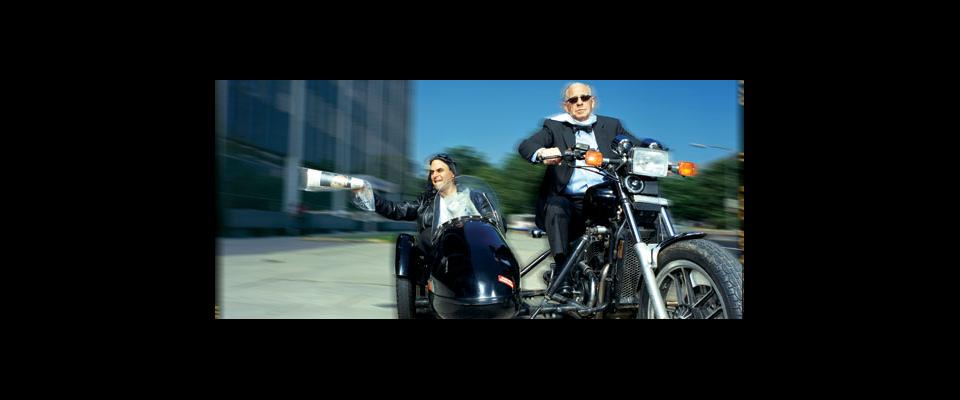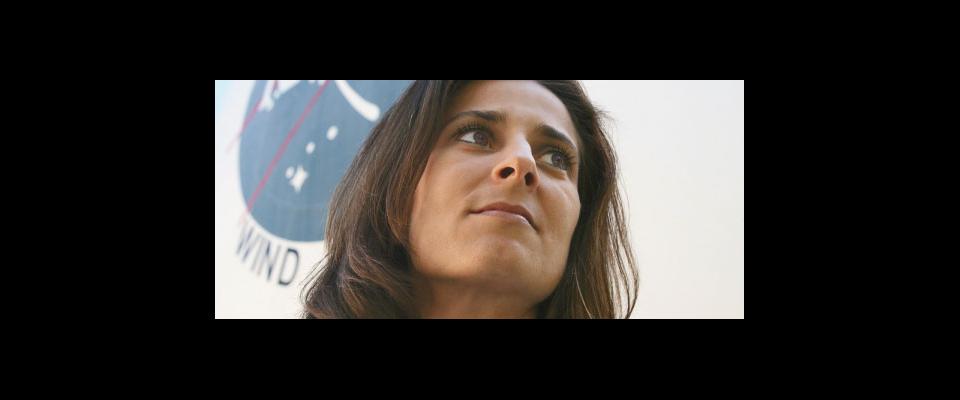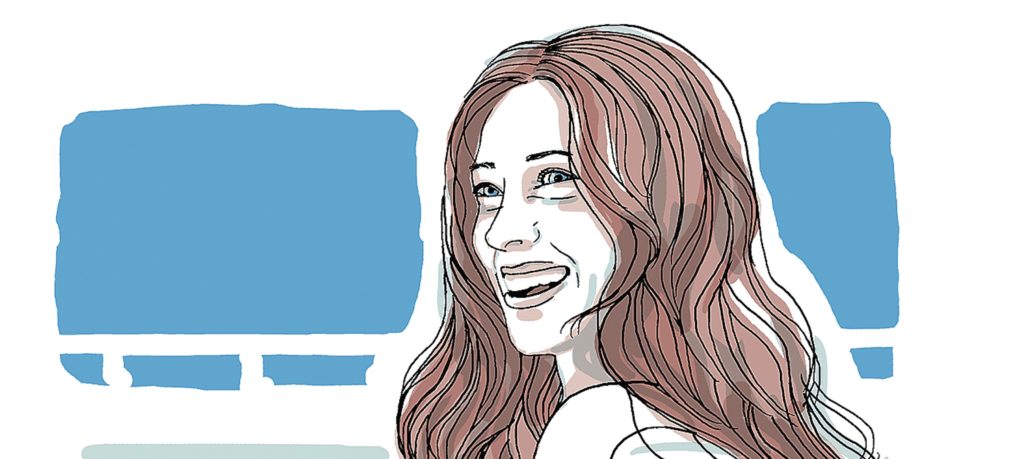Balancing dinner party decorum with spontaneous wit
In a recent show, Peter Sagal, host of National Public Radio’s Wait Wait … Don’t Tell Me!, opened with a salute to the enemy.
“At the risk of alienating my colleagues in public radio, I want to praise a commercial TV program,” he said. Which one? “Dancing with the Stars. Yes. Why? Why do I love that show so much? Because that show, like ours, is based on an optimistic view of human nature. We share a common assumption that every week millions of people will take the time to watch-or listen-to people trying to do a difficult task with absolutely none of the required training or skill.”
It was a pitch-perfect way to announce that Dancing with the Stars host Tom Bergeron would be calling in, while simultaneously hushing the incipient grumblings from listeners who might protest at the thought of NPR airwaves devoting time to the host of a pulpy celebrity TV program.
Any show that aspires to those NPR airwaves, and to humor and entertainment, walks a narrow and precipitous path. It must maintain the decorum that listeners have come to expect from NPR, while being outrageous enough to make people laugh. Wait Wait, NPR’s news quiz, not only manages this balancing act, it does so without a script. On February 8 and 9, when Wait Wait comes to Zellerbach Hall, the show will give a Berkeley audience a glimpse of how it pulls this off.
Each week, Sagal offers up newsy questions as improvisational fodder, and a panel of writers and humorists compete while chattering wittily. Miraculously, the show carries this off in a manner both dignified and amusing (if not fall-out-of-your-chair funny). Of course, Wait Wait does lose some listeners: Some find the jokes timid and the wit insufferable, others are incensed that public radio attempts humor at all (those who write in to say something like “How dare you mock left-handed Zamboni drivers!”). But Wait Wait still gets through to two million other listeners.
The show’s success is a hopeful indicator for NPR’s future. Many think of the NPR audience as elderly, and conventional public radio wisdom holds that the elderly resist change. The median age of Wait Wait‘s audience is 47—not elderly, but not exactly spring chickens either—a borderline baby boomer crowd. NPR still manages to innovate, enticing enough new members to replace those dying off. Somehow it manages to make new shows, like Wait Wait, for the new day. Of course, Sagal wasn’t thinking about any of that when he made his Dancing-with-the-Stars quip. The makers of Wait Wait walk the line of public radio humor like Tarot’s Fool: blind and blithely confident.
“Do stuff that pleases yourself,” Sagal says. “And if you are lucky, your views will line up with your audience.”
It’s not entirely luck that accounts for this alignment. If there’s one thing that unites all the panelists who cycle through the show, it’s that they all listen to public radio. “What do you call it when you get to your house and stay in the car to listen? ‘Driveway moments,’ I have those all the time,” says comedian Paula Poundstone. “And when I started going on Wait Wait, people started saying, ‘I heard you on the radio,’ and I was surprised because they looked normal. I guess I thought of NPR [listeners] as like the guy from Masterpiece Theater, you know, locked in a library, and it’s hard to tell where the leather of the books ends and his skin begins.”
Get a few of these NPR people telling jokes and it creates the right cultural chemistry to draw others. “We see the show as striving toward the platonic ideal of a dinner party,” Sagal says. “If you could get the funniest, most compatible people together and just make the perfect conversation—that’s what we want.”
“We are experienced at being at this dinner party,” says writer and Wait Wait panelist Adam Felber. “We know if a joke will upset the host. In many ways, the listener is the host. And public radio is the home. It’s this nice place at the bottom of the dial you can always come home to.”
The aura of homeyness is both a boon and a burden to public radio. Listeners like to linger in a place that feels like home—but they won’t take kindly to strangers who come in and start moving the furniture around. They certainly won’t abide being insulted. For Wait Wait, that means it’s not enough to simply pick the right participants: It turns out there’s a lot of work that goes into making the show sound so off-the-cuff.
On a Tuesday morning, Wait Wait senior producer Rod Abid is surfing the Internet, reading the news, looking for the threads that will evolve into the week’s major stories. In nearby cubicles, Peter Sagal and producer Mike Danforth are doing pretty much the same thing. “We really don’t do much of anything,” Abid says. It’s not glamorous, but this is what it takes to give Wait Wait‘s wits their ammo. The Wait Wait team-a total of five-keep a running list of stories, shuffling them as they develop and hunting out funny angles. On Thursday they read through the topics and try to pick the ones that will get the panelists rolling. “We do a lot of writing, but we never know what’s going to happen,” Sagal says. “Some things, in the read-through, they just sound like the perfect opening and then at the show all the panelists just stare at me.”
Wait Wait has flirted with the idea of going to a more rehearsed format, but when Sagal asked panelist Charlie Pierce what he thought about the idea of giving out the questions ahead of time, Pierce insisted it would wreck the show. Panelist Tom Bodett agrees. “You can always ruin a joke by thinking about it,” he says. Essentially, the producers of Wait Wait are paid to suggest themes for improvisation-and to figure out which panelist will make the most of it. For instance, producers know that no one is better equipped than Roy Blount, Jr., a writer with a Southern drawl and an air of gentlemanly sanctimony, to give a sex joke a highbrow spin. Last year Sagal asked Blount what behavior a Texas bill would outlaw.
Blount: “Well, I don’t want to be too graphic about it, let me just think—it would be suggestive cheerleading.”
Sagal: “You’re right! Sexually suggestive cheerleading.”
Blount: “Well, now, see, I didn’t want to use that term. You’re the one that’s dragging sex into it.”
Sagal: “Actually, the person dragging sex into it was representative Al Edwards, a member of the Texas House, a Democrat from Houston. He’s stared, and stared, at what passes for cheerleading these days. Stared and stared some more—he does not like what he sees. His bill would give the state department of education authority to punish schools that allow, quote, overtly sexually suggestive cheers.”
Paula Poundstone couldn’t resist: “What would the punishment be? … It’s a spanking, isn’t it?”
Sagal: “We were wondering, was he referring to the gyrations of the dance moves or was he actually referring to the, um, content of the cheers?”
Adam Felber: “You mean like that one: ‘How about some sex!’ Is that sexually suggestive?”
Poundstone: “How ’bout that one: ‘We lost that point, but I’ll do you anyway!’ I think that crosses a line, you know? By golly, I’ll go down there and tell them so.”
Blount’s tone of moral outrage isn’t the only thing that keeps exchanges like this inside the lines. Producers also edit these riffs. Wait Wait records the show in front of a live audience Thursday night. Then on Friday they cut the two-hour recording to a one-hour show.
Often, Felber says, the funniest moments fall to the cutting-room floor. “If you like the radio show, you will love seeing it live,” he says. “And then, when you hear it on the radio, you’ll be frustrated.” Because what works for Thursday night doesn’t always work for Saturday morning. Some riffs are too edgy—some just go on too long. But Sagal says that, difficult as it is to make public radio humor, the constraints on commercial broadcasting are far more draconian. “We get insulated from the vagaries of the market. This show would have never survived the first two years if we hadn’t had the time to stumble around and figure things out.” From this perspective, the continuing success of public radio doesn’t seem so mysterious: NPR doesn’t have to be an amazing innovator, it doesn’t have to be brilliantly funny and dignified all at the same time. All it has to do is sound better than its competitors. “The rest of radio is awful,” Sagal says. “Commercial radio is—I think Garrison Keillor says—savage capitalists shouting at you.”




















